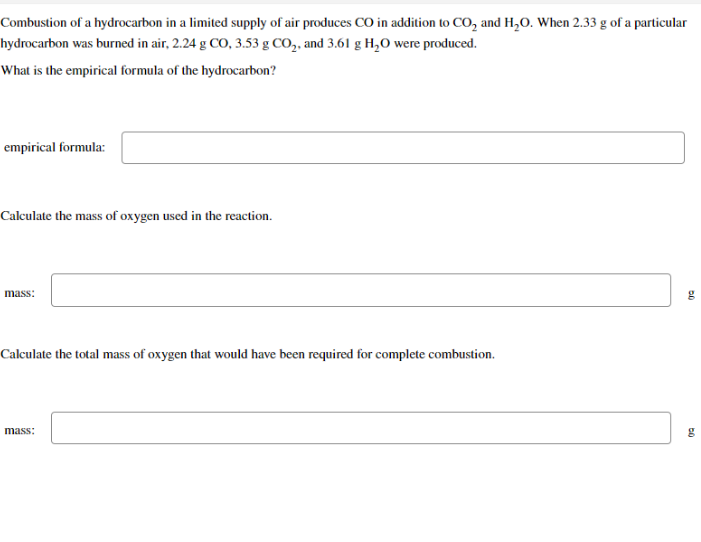Combustion of a hydrocarbon in a limited supply of air produces CO in addition to CO₂ and H₂O. When 2.33 g of a particular hydrocarbon was burned in air, 2.24 g CO, 3.53 g CO₂, and 3.61 g H₂O were produced. "What is the empirical formula of the hydrocarbon? empirical formula: Calculate the mass of oxygen used in the reaction. mass: Calculate the total mass of oxygen that would have been required for complete combustion. mass: DO DO g
Thermochemistry
Thermochemistry can be considered as a branch of thermodynamics that deals with the connections between warmth, work, and various types of energy, formed because of different synthetic and actual cycles. Thermochemistry describes the energy changes that occur as a result of reactions or chemical changes in a substance.
Exergonic Reaction
The term exergonic is derived from the Greek word in which ‘ergon’ means work and exergonic means ‘work outside’. Exergonic reactions releases work energy. Exergonic reactions are different from exothermic reactions, the one that releases only heat energy during the course of the reaction. So, exothermic reaction is one type of exergonic reaction. Exergonic reaction releases work energy in different forms like heat, light or sound. For example, a glow stick releases light making that an exergonic reaction and not an exothermic reaction since no heat is released. Even endothermic reactions at very high temperature are exergonic.

Trending now
This is a popular solution!
Step by step
Solved in 6 steps

when you calculated the mass of the oxygen used in the reaction, what was the answer in grams not gram per mole








